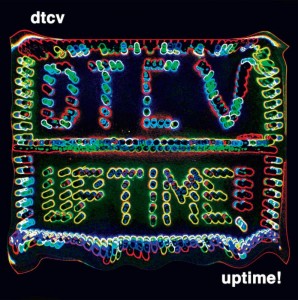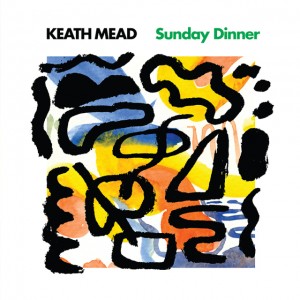American Culture – Pure American Gum
Man, noise rock with catchy pop hooks seems to be everywhere these days, and I am far from complaining. American Culture are a Denver group making bubblegum pop with a noisey twist, and they do this quite well. Pure American Gum is a short yet tantalizing album filled with songs that will win your heart over with their fuzzy goodness.
Really, the buzzy noise rock that American Culture have made for you on this album is delightfully infectious. They bring the punk elements of imperfect vocals as well as the gravelly guitars, but most of the songs have a catchy chorus that is bound to delight and entertain you and get stuck in your head for hours on end, which you don’t mind at all. Take second up track and single “Actual Alien,” as the first case of this infectious sound. All of the components of this song come at you all at once, but after a moment of disorientation, you’re able to really appreciate how they all come together. There are the rocking drum beats that carry the whole thing mixed with the buzzsaw guitars and feedback to make for a straight jam. Just when you think that this song can’t get any better, the vocals kick in and make it to the chorus, where the distorted voice screams out “I just wanna be a part of your world” and you’re completely hooked. I could talk about this song for days.
If you listen to the lyrics on Pure American Gum, you’ll notice there’s quite a bit of a range of subject matter and solemnity. There are tracks like “I Like American Culture,” which does a lot of listing of band names and describes people listening to things/liking american things. On the other hand, there are numbers that delve a bit deeper like “Social Anxiety,” which remind you that this album goes beyond vapid subject matter. The variety works great for the band as well as the genre of noise rock; both the music and the lyrics go back and forth between playful and serious, noisy and catchy. “I Wanna Be Your Animal,” is a song that shows both sides of this band, bringing some quaint female vocals in the beginning and then slowly builds to its grand finish expressing simple desire with streaming synths and rambunctious drums.
This album is brief, yet the perfect allotment of time for this blend of songs; they don’t overburden you with their gritty punk music, but rather lay down their jams and then step back so you can fully take in what they’ve made on Pure American Gum. The length of this record enhances the music on here, but in a subtle way that you don’t even think about. You just simply go back to the beginning and start it again, volume up full blast.













